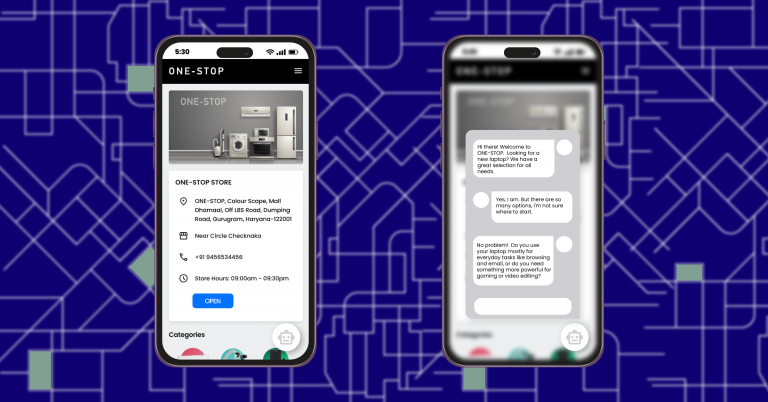“AI chatbots are just fancy digital assistants.” Nothing could be farther from the truth. There is a lot more that the AI chatbots can do.
The retail sector has seen significant changes since the introduction of chatbots. About 74% of users prefer using chatbots for simple queries, and by the end of 2024, consumers are expected to spend over $142 billion via chatbots. Moreover, Gartner predicts that chatbots are projected to handle primary customer service handle in recent years. That’s a huge shift from the days of endless waiting for consumer service representatives.
Sure, chatbots make life easier for consumers, but they’re also a game-changer for businesses. They’re all about driving sales and boosting efficiency. For instance, organizations such as JP Morgan have saved over 360,000 hours of labor by using chatbots. And it’s not just about big corporations; small and medium businesses are jumping on the bandwagon, too.
The future for chatbots is now looking pretty bright. AI-powered chatbots online are expected to become even more conversational, offering personalized experiences that feel almost human. By integrating with emerging technologies like augmented reality (AR) and virtual reality (VR), they’ll take shopping experiences to a new level.
Let’s dive deeper into how chatbots are revolutionizing retail and marketing.
The retail market is extremely competitive, but consumer experience is paramount. Automated chatbots contribute significantly to improving this experience in several ways:
Lead management is a critical aspect of retail operations, and chatbots excel in this area by:

Automated chatbots significantly enhance operational efficiency. They automate routine tasks and free up human agents for more strategic roles. Some of the benefits are:
Implementing chatbots in retail requires careful planning and execution. Here are some steps for effective chatbot implementation:
It is to meet such requirements that SingleInterface offers capabilities for businesses looking to implement chatbots in retail. The approach is to add a human touch to consumer interactions, ensuring that chatbots can engage consumers effectively and provide personalized experiences. By integrating SingleInterface’s chatbot offering, retailers can enhance consumer satisfaction, streamline operations, and boost sales.
The future of chatbots in retail looks promising as they evolve and become more sophisticated. Advancements in chatbots will help them:
Chatbots have become an integral part of automated consumer service in retail, offering numerous benefits for the industry. Businesses that leverage chatbots effectively can gain a competitive edge and provide superior service to their consumers.
Implementing AI-powered chatbots online and focusing on chatbot development can help retail businesses stay ahead in a rapidly changing market and stand out. Embracing Google AI-powered chatbots and leveraging Google chatbot technologies further enhances these efforts, ensuring companies deliver exceptional service and build lasting consumer relationships.